Key Takeaways
- The best pre-workout supplements contain full, clinically effective doses of the most scientifically supported pre-workout ingredients: caffeine, beta-alanine, L-citrulline, L-theanine, betaine, and alpha-GPC.
- Although most pre-workouts contain at least a few of these ingredients, most are underdosed, packed with other ineffective, overpriced ingredients, and priced at several times their actual value.
- Keep reading to learn what the clinically effective doses of these ingredients are, how to compare the actual cost of pre-workout supplements (it’s not just looking at the cost per bottle or per serving), and more!
When you first get into lifting weights, one of the first supplements you’ll learn about are pre-workouts.
As the name suggests, a pre-workout is a supplement that’s meant to be taken shortly before your workout to boost your performance. Typically, the ingredients are a mix of stimulants (mainly caffeine) and other substances that boost strength and endurance and reduce fatigue.
Picking a pre-workout supplement, though, is like choosing a political candidate.
There are myriad options, they all make bold promises, and no matter how good the pitch, you’re a little skeptical of whether they can deliver the goods.
Search “pre-workout supplements” in Google, and you’ll get 51 million results, and if you look at some of the products you’ll find they all tout different claims to fame.
Many companies brag about their product’s “proprietary blends”—supposedly unique combinations of ingredients you can’t find elsewhere.
Others claim their pre-workout provides a “steady release” of energy or eliminates the “crash” or “dependancy” caused by other products.
And others claim the ingredients are “science-based” or use “clinically effective doses.”
Further muddying the waters, there are endless variations of pre-workout supplements, such as pre-workouts for women, pre-workouts with and without caffeine, natural and artificially flavored pre-workouts, and more.
How are you supposed to pick the best one?
Or even a good one?
Or one that just isn’t laced with banned stimulants or meth-like drugs?
In this article, you’re going to learn exactly how to choose the best pre-workout supplement for you.
You’ll learn what ingredients you do (and don’t!) want in your pre-workout and in what doses, and how to pick the best pre-workout from the glut of options.
- How to Find the Best Pre-Workout Supplement for You in 4 Steps
- Step 1: Look at the Ingredients
- Step 2: Look at the Doses
- Step 3: Look at the Costs
- Step 4: Read Reviews and Pick the Winner
- The Bottom Line on Picking the Best Pre-Workout
Table of Contents
+How to Find the Best Pre-Workout Supplement for You in 4 Steps
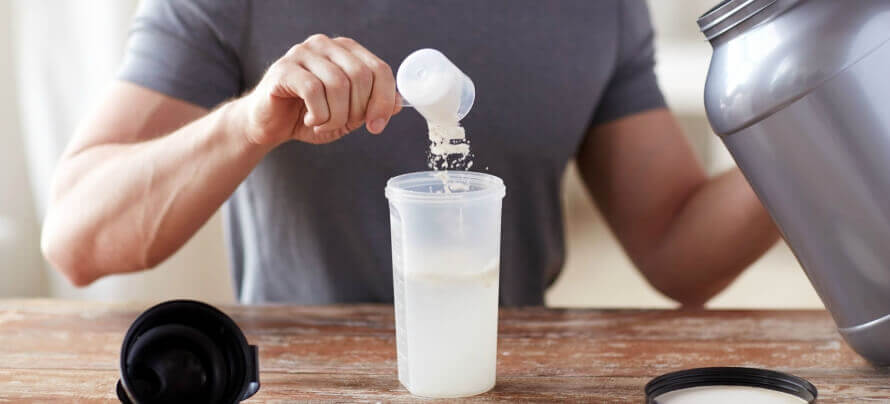
Picking the best pre-workout supplement is much like picking the “best” of any product:
- You figure out what the “must have” features are in the product (in this case, the proper ingredients and doses).
- You cross any products off your list that don’t have these features.
- You narrow down your list of remaining products based on which ones have the “nice to have” features you’re looking for (in this case, flavor options, natural vs. artificial sweeteners, flavors, dyes, etc.).
- You pick a winner based on price (if two pre-workouts are more or less identical, you go with the cheaper option).
Simple, no?
And when it comes to picking pre-workout supplements, the process looks like this:
- Look at the ingredients
- Look at the doses
- Look at the costs
- Read reviews and pick a winner
Let’s go through each step.
Step 1: Look at the Ingredients
The first step in finding the best pre-workout supplement is to look at what ingredients it contains.
It doesn’t matter how pretty the label is, how many #fitnessinfluencers endorse the product, how long the ingredients list is, or even how good the product tastes, if it doesn’t deliver the goods.
The sine qua non of any pre-workout is whether or not it contains the ingredients scientifically proven to improve workout performance.
When you turn over the bottle and look at the nutrition label, here are the ingredients you want to see in your pre-workout supplement (in order of importance):
Caffeine
Caffeine is a stimulant that increases resistance to fatigue, boosts strength and power, reduces perceived effort, and improves cognition and alertness.
It’s found naturally in some plants and in foods and beverages like coffee, tea, and chocolate, but can be extracted into a pure, dry powder called caffeine anhydrous (an- meaning “without,” and hydrous meaning “water”).
Research shows that the clinically effective dose of caffeine for improving physical performance is 3 to 6 mg per kilogram of body weight, with 5 to 6 mg per kilogram generally accepted as the “optimal” dose for maximizing benefits while avoiding unwanted side effects.
This works out to around about 250 to 500 mg of caffeine for a 180-pound man.
To maximize the benefits of caffeine on strength and endurance, you want to take it about 45 to 60 minutes before your workout.
Beta-Alanine
Beta-alanine is a naturally occurring amino acid that regulates the amount of the molecule carnosine that can be stored in your muscles.
One of carnosine’s jobs is to regulate the acidity of our muscles, which increases after repeated contractions and is one of the causes of muscle fatigue.
By increasing carnosine levels in the body, beta-alanine can reduce muscle acidity, thereby reducing fatigue associated with exercise, improving anaerobic exercise capacity, and increasing the amount of weight and number of reps you can do in your workouts. Over time, this should help you build more muscle and strength.
Read: Is Getting Stronger Really the Best Way to Gain Muscle?
The clinically effective dose of beta-alanine is between 2.6 and 6.4 grams, with most research showing that you can get the majority of the benefits with the lower end of this range (around 3 to 4 grams).
You can take beta-alanine at any time during the day, because it works by accumulating in the body over time.
A common side effect of beta-alanine is a mild prickling, itching, or tingling of the skin called paresthesia, which usually occurs on the hands and face. If you experience this, don’t worry—it’s entirely harmless and often goes away over time (and just because it goes away doesn’t mean it isn’t working!).
L-Citrulline Malate
L-citrulline malate is a combination of the amino acid L-citrulline with malic acid, a natural substance found in many fruits that’s involved in the creation of cellular energy.
L-citrulline is converted into another amino acid in the body known as L-arginine, which increases the production of a gas known as nitric oxide that widens blood vessels and improves blood flow.
Research also shows that supplementing with L-citrulline accomplishes this better than supplementing directly with L-arginine, which is very hit or miss in its effectiveness.
When it comes to pre-workout supplements, L-citrulline malate is superior to regular L-citrulline because malic acid likely confers additional health and performance benefits. L-citrulline malate is also the form used in most studies demonstrating the performance benefits associated with L-citrulline.
Research shows that supplementation with L-citrulline malate improves muscle endurance, relieves muscle soreness, and improves aerobic performance.
The clinically effective dose of L-citrulline malate is between 4 and 10 grams taken about an hour before exercise, with most research showing doses at the higher end of this range are best.
L-Theanine
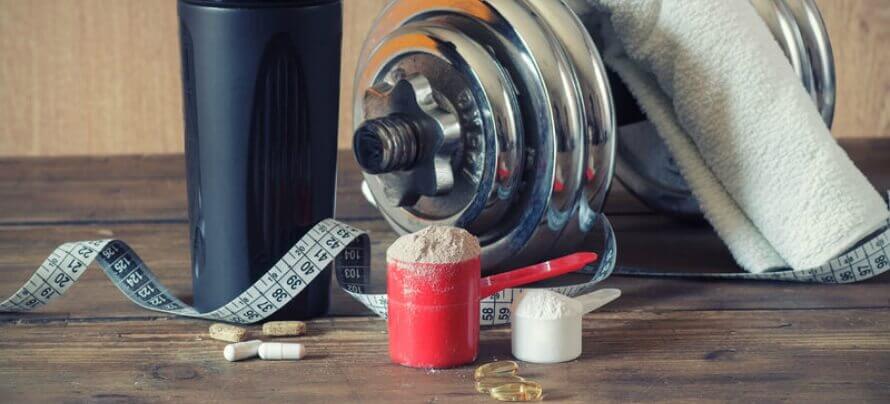
L-theanine is an amino acid found primarily in tea that’s responsible for some of its health benefits.
It helps balance the levels of two chemicals in the brain known as glutamate and GABA, which are neurotransmitters that improve the efficiency of nerve impulses.
That’s why research shows that supplementation with L-theanine reduces the effects of mental stress, increases the production of nitric oxide, and improves mood, memory performance, and attention when paired with caffeine.
The clinically effective dose of L-theanine is between 100 and 250 milligrams, and when combined with caffeine, it’s often found at a 2:1 or 1:1 ratio (twice as much L-theanine as caffeine or equal parts, respectively).
It’s best to take L-theanine with caffeine (around 45 to 60 minutes before training) for maximum performance benefits.
Betaine
Betaine (also known as trimethylglycine) is an amino acid found in various foods like beets (hence the name), spinach, and quinoa.
Betaine performs two major functions in the body: it acts as a methyl donor and as an osmolyte.
Allow me to explain . . .
Betaine is rich in a special type of carbon and hydrogen molecules known as methyl groups.
These groups can be passed around in the body through a process known as methylation, which is a vital component of many physiological functions, including DNA replication, fat metabolism, cellular energy production, and more.
Betaine has a lot of methyl groups to pass around, so it’s known as a “methyl donor.”
Betaine’s also an osmolyte, which is a substance that helps balance fluid levels inside and outside cells.
This is also important because fluid imbalances can cause cells to die either by shrinking too much or swelling to the point of bursting.
Although betaine’s physiological functions aren’t fancy, they’re beneficial during times of physical stress, and this is why research shows that supplementation with it boosts muscle endurance and increases strength.
The exact mechanisms of how it accomplishes this aren’t fully understood yet, but several hypotheses are being investigated.
The one currently considered most correct relates to betaine’s “cellular swelling” effect, which helps protect cells from exercise-induced damage and improves performance.
The clinically effective dose of betaine is between 1.25 and 2.5 grams. Like beta-alanine, betaine works by building up in the body over time, so you can take it whenever you like.
Alpha-GPC
Alpha-glycerophosphocholine (also known as alpha-GPC and glycerophosphocholine) is a compound that contains two molecules known as choline and glycerophosphate.
Choline is a nutrient that’s vital for brain health and function, and glycerophosphate is a substance that helps transport choline to the brain.
When ingested, alpha-GPC increases the activity of a chemical in the brain known as acetylcholine, which is used by nerves to communicate with each other, and provides the brain with glycerophosphate, which can improve its health and function.
While Alpha-GPC mitigates cognitive decline as we age, on the performance side of things, research shows it increases power output and increases growth hormone levels.
Read: Research Review: Can Alpha-GPC Supplements Make You Stronger?
The clinically effective dose of alpha-GPC is between 150 and 1,200 mg, with 250 to 500 mg sufficient for ergogenic and cognitive benefits, and higher doses required for reducing the symptoms of dementia.
The “Big Three” Pre-Workout Ingredients
All of these ingredients have been proven to help boost workout performance to one degree or another, but the “prime movers” are caffeine, beta-alanine, and L-citrulline malate.
That is, if you had to pick three ingredients to include in your pre-workout, this would be the winning combo.
Many studies have proven that all three of these ingredients can significantly improve workout performance, and at this point there’s little question that taking them will help you get more out of your workouts.
That said, betaine, L-theanine, and alpha-GPC are still likely beneficial and worth taking, but they’re “nice to haves,” not “need to haves,” when it comes to pre-workout supplementation.
Now, if you’ve ever looked at the ingredients label of a pre-workout supplement, you know that most contain a lot more than these six.
The truth is that most of these ingredients are either scientifically unsupported or proven not to work.
Here are the ingredients you don’t want in your pre-workout supplement:
- Proprietary blends
- Branched-chain amino acids (including “special” kinds like fermented BCAAs)
- Thyroid support blends
- Testosterone boosters
- Creatine hydrochloride, ethyl ester, nitrate, etc. (anything other than creatine monohydrate)
- Fancy kinds of caffeine (Purcaf, di-caffeine malate, caffeine citric acid blend)
- Arginine silicate
- L-Citrulline aspartate
- Choline bitartrate
- Vitamins and minerals
- L-Dopa
- Theobromine
- Huperzine A
- Norvaline
Now, you may be wondering, what about creatine? Why isn’t that on the list of six best pre-workout supplements?
Creatine is one of the most effective supplements for improving strength and muscle growth, but many people prefer to take it at different times during the day.
Read: This Is the Definitive Guide to Creatine Monohydrate Supplementation
For a long time, people thought that taking creatine post-workout (especially with carbohydrate) helped improve absorption, but it later turned out this wasn’t the case. As a result, many people still think they need to take creatine with a meal after they lift weights, and thus not everyone wants creatine in their pre-workout.
Summary: The three most effective pre-workout ingredients are caffeine, beta-alanine, and L-citrulline malate, although L-theanine, betaine, and alpha-GPC are also beneficial.
What About Natural vs. Artificial Sweeteners, Flavors, and Dyes?
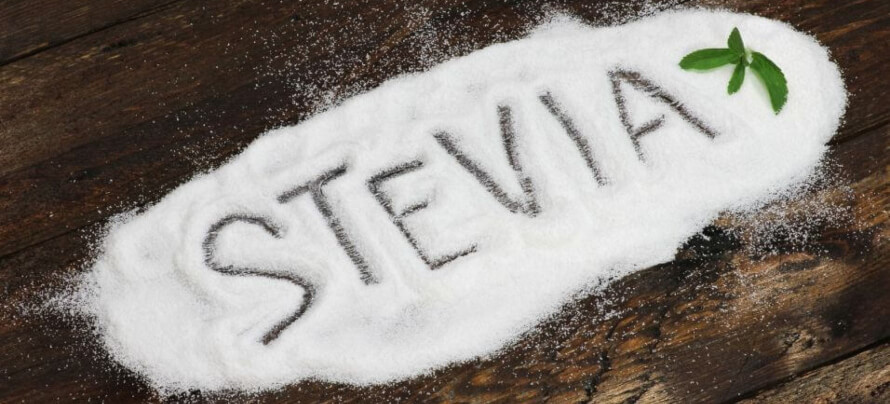
Sometimes what’s not included in your pre-workout supplement is just as important as what is included.
For example, many pre-workout supplements contain artificial sweeteners, flavors, and dyes.
Artificial sweeteners are man made chemicals that taste like sugar but contain few to no calories. Three of the most popular artificial sweeteners are sucralose (often referred to as Splenda), aspartame, and acesulfame potassium (Ace K).
While artificial sweeteners may not be as dangerous as some people claim, and most research shows they’re safe, there’s still a lot we don’t know about how these substances affect our health over time. Thus, it’s a good idea to consume them in moderation or, if possible, not at all.
Luckily, natural sweeteners like stevia and erythritol are perfectly good alternatives (some people even prefer the way these sweeteners taste).
Research shows they’re not only safe, but may also lower cholesterol and blood sugar levels, reduce blood pressure and inflammation, exert anti-cancer effects, and more.
Read: 13 Studies Answer: What’s the Best Way to Lower Blood Sugar?
Many supplements also contain artificial dyes, known as “azo dyes,” such as FD&C Yellow #5 (also known as tartrazine), FD&C Blue #1 (also known as Brilliant Blue), FD&C Red No. 40 (also known as Allura Red AC), and others.
As with artificial sweeteners, consuming azo dyes might not be as harmful as some would have you believe, but there is evidence that these chemicals may cause some negative effects in the body over time.
And while most research shows artificial flavors aren’t harmful, they aren’t necessary. Natural flavors taste equally good.
Summary: Most research shows that artificial sweeteners, flavors, and dyes aren’t as harmful as some people would have you believe, but there are perfectly viable, less risky alternatives for sweetening, flavoring, and coloring pre-workout supplements.
What About Calories?
In general, you want your pre-workout to have as few calories as possible.
Why?
Several reasons:
If you’re cutting, you want to get most of your calories from whole, nutritious, filling foods like beef, poultry, fish, eggs, dairy, fresh fruits and vegetables, whole grains, and so forth.
Most of the calories in pre-workout supplements come from sugar, and while there’s nothing inherently wrong with sugar, these are still “empty calories.” By that, I mean they aren’t doing anything to improve your diet quality or keep you satiated, and they reduce the amount of other tasty, nutritious foods you can enjoy while staying within your calorie goals.
What’s more, there’s no need to add a lot of sugar to a pre-workout supplement. There are many other natural, low- or no-calorie sweeteners such as stevia and erythritol that taste just as good, and provide no more than 5 or 10 calories per serving.
In other words, if you don’t have to “spend” part of your calorie budget on your pre-workout supplement, why do so?
If you like to train fasted, pre-workout supplements with lots of calories can raise insulin levels enough to negate any benefits of fasted training. If a pre-workout has a small number of calories (~20 or less) this isn’t an issue, but it can be a problem with some high-calorie pre-workout supplements.
Summary: You generally want your pre-workout supplement to contain as few calories as possible so that you can get the majority of your calories from whole, nutritious, satiating foods, and because you don’t need lots of sugar to make a pre-workout taste good.
Step 2: Look at the Doses

Supplement companies are crafty.
They know many consumers only look at the ingredients and pay little attention to the amounts, so they’ll snooker consumers by “pixie dusting” their products—including small amounts of key ingredients just so they can put them on the label.
That’s why it’s essential to look at the ingredients and the doses of those ingredients when picking a pre-workout supplement.
To truly be “science backed,” every ingredient in a pre-workout supplement must be proven effective in well-designed, well-executed, and peer-reviewed scientific research, and every dose of every ingredient must conform to the doses used in these studies (“clinically effective doses”).
If a product doesn’t meet these simple criteria—if the majority of its ingredients haven’t been proven effective in sound research and most of the doses are below the clinically effective levels—then it’s not “backed by science,” and probably not worth buying.
Here are the doses of the active ingredients you want in your pre-workout supplement:
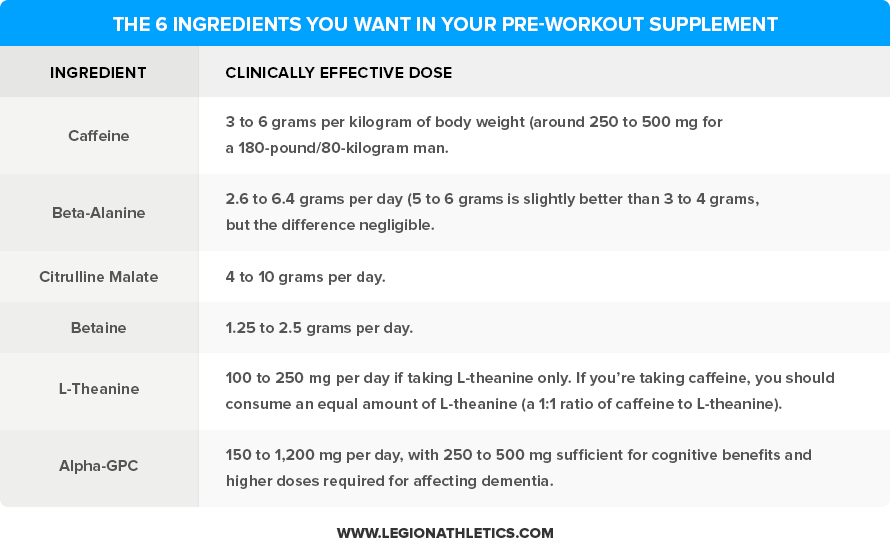
Compare the ingredients label of the product you’re considering with the numbers on this chart.
How many of the ingredients are on the label?
Of those, how many are included at the full, clinically effective dose?
How many of the ingredient doses are hidden behind proprietary blends?
Remember, the most important three ingredients are caffeine, beta-alanine, and L-citrulline malate, so you want to make sure your pre-workout at least reaches the clinically effective doses for these three ingredients. If the product you’re considering doesn’t meet these simple criteria, it’s probably not worth buying.
You can be a little more forgiving when it comes to doses of betaine, L-theanine, and alpha-GPC, as they don’t affect performance as much as caffeine, beta-alanine, and L-citrulline malate. That said, you generally want your pre-workout to contain at least 80% of the clinically effective dose for all six of these ingredients.
For example, if a pre-workout supplement only has 500 mg of betaine per serving, that’s less than half of the clinically effective dose and not going to offer any performance-enhancing benefits. If a pre-workout contains 1 gram per serving, though, that’s enough to offer some benefits even though it doesn’t quite reach the full clinically effective dose.
Summary: Before buying a pre-workout supplement, look at the ingredients list and ensure that caffeine, beta-alanine, and L-citrulline malate are included at the full, clinically effective doses, and try to buy a product that gets close to the clinically effective doses for betaine, L-theanine, and alpha-GPC.
Step 3: Look at the Costs
When most people shop for pre-workout supplements, they just look at the cost per bottle.
If Pre-Workout A costs $40 per bottle, and Pre-Workout B costs $20 per bottle, and the ingredients lists look similar, the latter must be a better bargain, right?
Not necessarily.
As you learned a moment ago, just because a pre-workout supplement includes effective ingredients of the six ingredients listed earlier doesn’t mean it contains clinically effective doses of those ingredients.
Thus, what you really want to consider when reckoning the value of a pre-workout supplement is how much you pay per gram of effective, active ingredients.
That is, how much value are you really getting per scoop?
There are a few steps to figuring this out:
1. Calculate the cost per serving of your pre-workout supplement.
To find this number, divide the cost of the bottle by the number of servings. For example, a bottle of Legion Pulse pre-workout powder costs $40 and contains 21 servings, which pins the cost per serving at $1.9.
2. Sum the total amount of effective ingredients per serving.
This means adding up how many milligrams of caffeine, beta-alanine, L-citrulline, L-theanine, betaine, and alpha-GPC each serving contains.
3. Divide the cost per serving by the amount of active ingredients in each serving.
In the case of Pulse, for instance, each serving contains about 15 grams of total active ingredients, which means you pay about 12.7 cents per gram of active ingredients ($1.9 / 15 = 12.7).
If you don’t feel like doing the math (something most supplement companies are counting on!), here’s a helpful chart for figuring out how much value you’re really getting from ten common pre-workout supplements, listed from best to worst value:
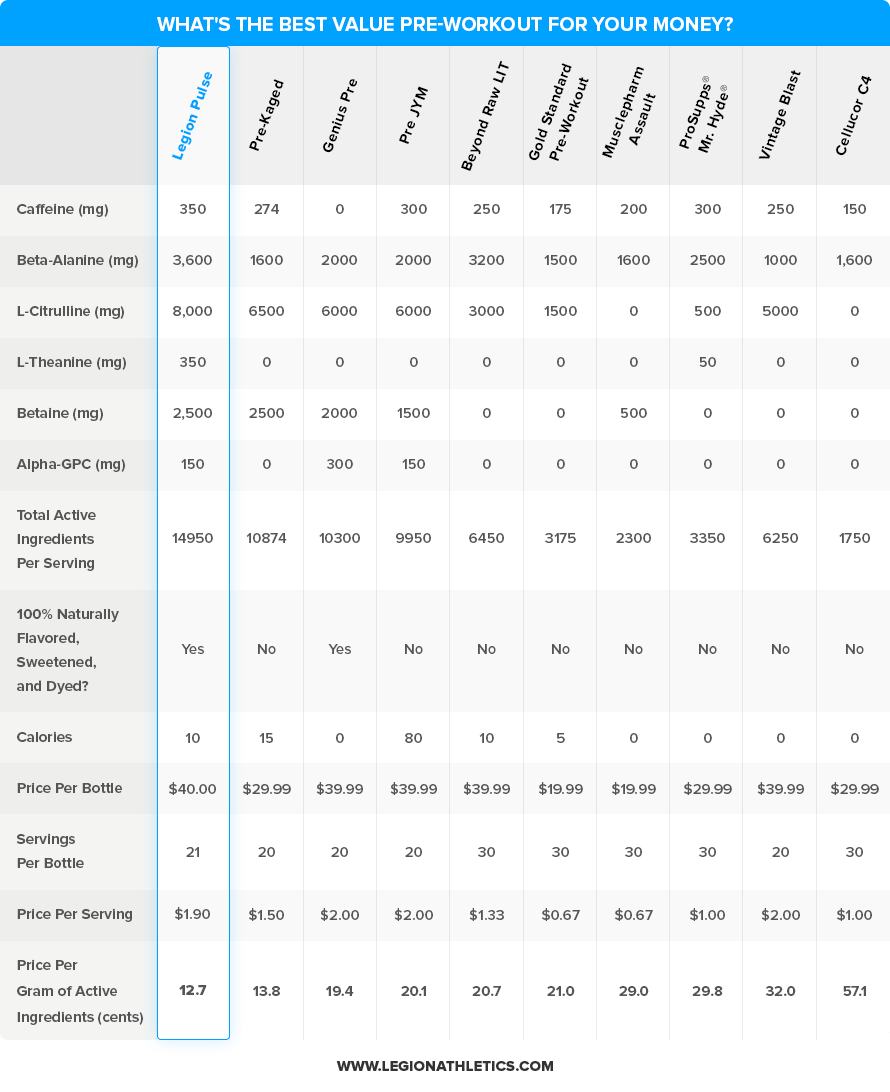
As you can see, Legion Pulse is the best value pre-workout by a long shot, and the only other product that comes close is Pre-Kaged, which isn’t naturally flavored, contains a suboptimal dose of beta-alanine, and doesn’t contain alpha-GPC.
On the other extreme, you’re paying over four times more for the ingredients in Cellucor C4, and you aren’t getting any L-citrulline, L-theanine, betaine, or alpha-GPC, and you’re getting a suboptimal dose of caffeine and beta-alanine. If you take a double serving you’ll reach the clinically effective dose of these two ingredients, but you’ll also be paying nine times more than you would for the same ingredients in Pulse.
For some products, like Vintage Blast and Pre Jym, you’re paying about two to four times as much for the same ingredients (and in both cases, suboptimal doses of several ingredients).
Now, it’s worth noting that I didn’t include creatine and a few other ingredients in this analysis for several reasons:
- As you learned earlier in this article, not everyone wants creatine in their pre-workout supplement. What’s more, creatine is incredibly cheap (a few cents per serving), so including it in this comparison wouldn’t substantially change the value of the supplements.
- Most of the other ingredients you’ll find in pre-workouts aren’t going to improve your performance—they’re basically dead weight, and aren’t worth paying for.
So, how do supplement companies justify these exorbitant prices?
Well, catchpenny, predatory, deceitful marketing methods help, but perhaps a better question is why are some companies, like Legion, able to offer their products for so much less than their competitors?
This largely boils down to cutting out the “middlemen” of the supplement industry.
You see, most supplement companies have their products made overseas and import them into the United States. These supplements are then sold to vendors like supplement shops (RIP GNC) and various online retailers, who add a sizable markup to cover their marketing costs, and then sell them to you, the consumer.
Legion does things differently.
We formulate our products in house, manufacture them in the United States, and ship them directly to our customers. Instead of spending most of our marketing dollars on advertising, sponsorships, and so forth, we put the majority of our time, effort, and capital into educational marketing materials like this article, the Legion Blog, and the Muscle for Life podcast, so we have a more direct relationship with our customers, too.
The end result is that we can afford to make significantly higher quality products for a much lower cost than our competitors, and we pass the savings on to our customers.
Summary: To determine the best value pre-workout supplement, you can’t just look at the cost per bottle or per serving. Instead, you want to look at the cost per gram of active ingredients that will best improve your workout performance and energy levels.
Step 4: Read Reviews and Pick the Winner

It’s always a good idea to peruse reviews of any product before buying.
You can learn a lot from customer reviews that may be hard to glean from sales pages—what the pre-workout tastes like, how other, unbiased people actually felt and performed after taking the product, how the company treats their customers, and so forth.
In fact, that last point is particularly important because so many supplement companies neglect it.
We’ve heard from thousands of customers that one of the reasons they bought Pulse (and continue to do so) is because they saw or heard how we treated customers, and were tired of being ignored or blown off by other supplement companies.
Every company should treat their customers like friends and family, but these people put their health in the company’s hands.
In other words, don’t settle for mediocre, desultory, or insulting service. Buy from a company you know, like, and trust, and that treats you well.
The best way to find out how a company treats customers before buying from them, is to read reviews. If most of the customers had a pleasant interaction with the company, chances are you will, too.
Summary: Before buying a pre-workout supplement, read customer reviews to ensure that the company treats its customers well. If you can’t find any customer reviews or the reviews are mostly negative, you may want to look elsewhere for a pre-workout.
The Bottom Line on Picking the Best Pre-Workout
Picking a pre-workout supplement boils down to four simple steps:
- Look at the ingredients
- Look at the doses
- Look at the costs
- Read reviews and pick a winner
When it comes to pre-workout ingredients, the three most effective are caffeine, beta-alanine, and L-citrulline malate, although L-theanine, betaine, and alpha-GPC are also beneficial.
Most research shows that artificial sweeteners, flavors, and dyes aren’t as harmful as some people would have you believe, but there are perfectly viable, less risky alternatives for sweetening, flavoring, and coloring pre-workout supplements.
You generally want your pre-workout supplement to contain as few calories as possible so that you can get the majority of your calories from whole, nutritious, satiating foods, and because you don’t need lots of sugar to make a pre-workout taste good.
Just because a pre-workout supplement contains effective ingredients doesn’t mean it’ll improve your performance—it also needs to contain the full, clinically effective doses of those ingredients.
Before buying a pre-workout supplement, look at the ingredients list and compare it to the chart shared earlier in this article, and make sure it at least contains the correct doses of caffeine, beta-alanine, and L-citrulline. If it also contains clinically effective doses of betaine, L-theanine, and alpha-GPC, that’s even better.
To determine the best value pre-workout supplement, you can’t just look at the cost per bottle or per serving. Instead, you want to look at the cost per gram of active ingredients that will best improve your workout performance and energy levels.
Before buying a pre-workout supplement, read customer reviews to ensure that the company treats its customers well. If you can’t find any customer reviews or the reviews are mostly negative, you may want to look elsewhere for a pre-workout.
What’s your take on choosing the best pre-workout supplement? Have anything else to share? Let me know in the comments below!
Scientific References +
- McCann, D., Barrett, A., Cooper, A., Crumpler, D., Dalen, L., Grimshaw, K., Kitchin, E., Lok, K., Porteous, L., Prince, E., Sonuga-Barke, E., Warner, J. O., & Stevenson, J. (2007). Food additives and hyperactive behaviour in 3-year-old and 8/9-year-old children in the community: a randomised, double-blinded, placebo-controlled trial. Lancet, 370(9598), 1560–1567. https://doi.org/10.1016/S0140-6736(07)61306-3
- Arnold, L. E., Lofthouse, N., & Hurt, E. (2012). Artificial Food Colors and Attention-Deficit/Hyperactivity Symptoms: Conclusions to Dye for. Neurotherapeutics, 9(3), 599–609. https://doi.org/10.1007/s13311-012-0133-x
- Paul, S., Sengupta, S., Bandyopadhyay, T. K., & Bhattacharyya, A. (2012). Stevioside induced ROS-mediated apoptosis through mitochondrial pathway in human breast cancer cell line MCF-7. Nutrition and Cancer, 64(7), 1087–1094. https://doi.org/10.1080/01635581.2012.712735
- Yingkun, N., Zhenyu, W., Jing, L., Xiuyun, L., & Huimin, Y. (2013). Stevioside protects LPS-induced acute lung injury in mice. Inflammation, 36(1), 242–250. https://doi.org/10.1007/s10753-012-9540-8
- Yadav, S. K., & Guleria, P. (2012). Steviol Glycosides from Stevia: Biosynthesis Pathway Review and their Application in Foods and Medicine. Critical Reviews in Food Science and Nutrition, 52(11), 988–998. https://doi.org/10.1080/10408398.2010.519447
- Shivanna, N., Naika, M., Khanum, F., & Kaul, V. K. (2013). Antioxidant, anti-diabetic and renal protective properties of Stevia rebaudiana. Journal of Diabetes and Its Complications, 27(2), 103–113. https://doi.org/10.1016/j.jdiacomp.2012.10.001
- Ahmad, U., Ahmad, R. S., Arshad, M. S., Mushtaq, Z., Hussain, S. M., & Hameed, A. (2018). Antihyperlipidemic efficacy of aqueous extract of Stevia rebaudiana Bertoni in albino rats. Lipids in Health and Disease, 17(1). https://doi.org/10.1186/s12944-018-0810-9
- Toews, I., Lohner, S., Küllenberg De Gaudry, D., Sommer, H., & Meerpohl, J. J. (2019). Association between intake of non-sugar sweeteners and health outcomes: Systematic review and meta-analyses of randomised and non-randomised controlled trials and observational studies. In BMJ (Online) (Vol. 364, p. 4718). BMJ Publishing Group. https://doi.org/10.1136/bmj.k4718
- Kawamura, T., Okubo, T., Sato, K., Fujita, S., Goto, K., Hamaoka, T., & Iemitsu, M. (2012). Glycerophosphocholine enhances growth hormone secretion and fat oxidation in young adults. Nutrition, 28(11–12), 1122–1126. https://doi.org/10.1016/j.nut.2012.02.011
- Ziegenfuss, T., Landis, J., & Hofheins, J. (2008). Acute supplementation with alpha-glycerylphosphorylcholine augments growth hormone response to, and peak force production during, resistance exercise. Journal of the International Society of Sports Nutrition, 5(S1), P15. https://doi.org/10.1186/1550-2783-5-s1-p15
- Moreno Moreno, M. D. J. (2003). Cognitive improvement in mild to moderate Alzheimer’s dementia after treatment with the acetylcholine precursor choline alfoscerate: A multicenter, double-blind, randomized, placebo-controlled trial. Clinical Therapeutics, 25(1), 178–193. https://doi.org/10.1016/S0149-2918(03)90023-3
- Lee, E. C., Maresh, C. M., Kraemer, W. J., Yamamoto, L. M., Hatfield, D. L., Bailey, B. L., Armstrong, L. E., Volek, J. S., McDermott, B. P., & Craig, S. A. S. (2010). Ergogenic effects of betaine supplementation on strength and power performance. Journal of the International Society of Sports Nutrition, 7, 27. https://doi.org/10.1186/1550-2783-7-27
- Alfieri, R. R., Bonelli, M. A., Cavazzoni, A., Brigotti, M., Fumarola, C., Sestili, P., Mozzoni, P., De Palma, G., Mutti, A., Carnicelli, D., Vacondio, F., Silva, C., Borghetti, A. F., Wheeler, K. P., & Petronini, P. G. (2006). Creatine as a compatible osmolyte in muscle cells exposed to hypertonic stress. Journal of Physiology, 576(2), 391–401. https://doi.org/10.1113/jphysiol.2006.115006
- Gomez-Ramirez, M., Kelly, S. P., Montesi, J. L., & Foxe, J. J. (2009). The effects of l-theanine on alpha-band oscillatory brain activity during a visuo-spatial attention task. Brain Topography, 22(1), 44–51. https://doi.org/10.1007/s10548-008-0068-z
- Einöther, S. J. L., Martens, V. E. G., Rycroft, J. A., & De Bruin, E. A. (2010). l-Theanine and caffeine improve task switching but not intersensory attention or subjective alertness. Appetite, 54(2), 406–409. https://doi.org/10.1016/j.appet.2010.01.003
- Bryan, J. (2008). Psychological effects of dietary components of tea: Caffeine and L-theanine. In Nutrition Reviews (Vol. 66, Issue 2, pp. 82–90). Nutr Rev. https://doi.org/10.1111/j.1753-4887.2007.00011.x
- Siamwala, J. H., Dias, P. M., Majumder, S., Joshi, M. K., Sinkar, V. P., Banerjee, G., & Chatterjee, S. (2013). L-Theanine promotes nitric oxide production in endothelial cells through eNOS phosphorylation. Journal of Nutritional Biochemistry, 24(3), 595–605. https://doi.org/10.1016/j.jnutbio.2012.02.016
- Kimura, K., Ozeki, M., Juneja, L. R., & Ohira, H. (2007). l-Theanine reduces psychological and physiological stress responses. Biological Psychology, 74(1), 39–45. https://doi.org/10.1016/j.biopsycho.2006.06.006
- Suzuki, T., Morita, M., Kobayashi, Y., & Kamimura, A. (2016). Oral L-citrulline supplementation enhances cycling time trial performance in healthy trained men: Double-blind randomized placebo-controlled 2-way crossover study. Journal of the International Society of Sports Nutrition, 13(1). https://doi.org/10.1186/s12970-016-0117-z
- Glenn, J. M., Gray, M., Jensen, A., Stone, M. S., & Vincenzo, J. L. (2016). Acute citrulline-malate supplementation improves maximal strength and anaerobic power in female, masters athletes tennis players. European Journal of Sport Science, 16(8), 1095–1103. https://doi.org/10.1080/17461391.2016.1158321
- Glenn, J. M., Gray, M., Wethington, L. N., Stone, M. S., Stewart, R. W., & Moyen, N. E. (2017). Acute citrulline malate supplementation improves upper- and lower-body submaximal weightlifting exercise performance in resistance-trained females. European Journal of Nutrition, 56(2), 775–784. https://doi.org/10.1007/s00394-015-1124-6
- J L Wu 1 , Q P Wu, J M Huang, R Chen, M Cai, J. B. T. (n.d.). Effects of L-malate on physical stamina and activities of enzymes related to the malate-aspartate shuttle in liver of mice - PubMed. Retrieved September 2, 2020, from https://pubmed.ncbi.nlm.nih.gov/16555951/
- Zhao, Y., Vanhoutte, P. M., & Leung, S. W. S. (2015). Vascular nitric oxide: Beyond eNOS. In Journal of Pharmacological Sciences (Vol. 129, Issue 2, pp. 83–94). Japanese Pharmacological Society. https://doi.org/10.1016/j.jphs.2015.09.002
- Förstermann, U., & Sessa, W. C. (2012). Nitric oxide synthases: Regulation and function. In European Heart Journal (Vol. 33, Issue 7). Eur Heart J. https://doi.org/10.1093/eurheartj/ehr304
- Harris, R. C., Tallon, M. J., Dunnett, M., Boobis, L., Coakley, J., Kim, H. J., Fallowfield, J. L., Hill, C. A., Sale, C., & Wise, J. A. (2006). The absorption of orally supplied β-alanine and its effect on muscle carnosine synthesis in human vastus lateralis. Amino Acids, 30(3 SPEC. ISS.), 279–289. https://doi.org/10.1007/s00726-006-0299-9
- Hobson, R. M., Saunders, B., Ball, G., Harris, R. C., & Sale, C. (2012). Effects of β-alanine supplementation on exercise performance: A meta-analysis. In Amino Acids (Vol. 43, Issue 1, pp. 25–37). Amino Acids. https://doi.org/10.1007/s00726-011-1200-z
- Kern, B. D., & Robinson, T. L. (2011). Effects of β-alanine supplementation on performance and body composition in collegiate wrestlers and football players. Journal of Strength and Conditioning Research, 25(7), 1804–1815. https://doi.org/10.1519/JSC.0b013e3181e741cf
- Smith, A. E., Walter, A. A., Graef, J. L., Kendall, K. L., Moon, J. R., Lockwood, C. M., Fukuda, D. H., Beck, T. W., Cramer, J. T., & Stout, J. R. (2009). Effects of β-alanine supplementation and high-intensity interval training on endurance performance and body composition in men; a double-blind trial. Journal of the International Society of Sports Nutrition, 6. https://doi.org/10.1186/1550-2783-6-5
- Walter, A. A., Smith, A. E., Kendall, K. L., Stout, J. R., & Cramer, J. T. (2010). Six weeks of high-intensity interval training with and without β-alanine supplementation for improving cardiovascular fitness in women. Journal of Strength and Conditioning Research, 24(5), 1199–1207. https://doi.org/10.1519/JSC.0b013e3181d82f8b
- Sale, C., Saunders, B., Hudson, S., Wise, J. A., Harris, R. C., & Sunderland, C. D. (2011). Effect of β-alanine plus sodium bicarbonate on high-intensity cycling capacity. Medicine and Science in Sports and Exercise, 43(10), 1972–1978. https://doi.org/10.1249/MSS.0b013e3182188501
- Hill, C. A., Harris, R. C., Kim, H. J., Harris, B. D., Sale, C., Boobis, L. H., Kim, C. K., & Wise, J. A. (2007). Influence of β-alanine supplementation on skeletal muscle carnosine concentrations and high intensity cycling capacity. Amino Acids, 32(2), 225–233. https://doi.org/10.1007/s00726-006-0364-4
- Stout, J. R., Cramer, J. T., Zoeller, R. F., Torok, D., Costa, P., Hoffman, J. R., Harris, R. C., & O’Kroy, J. (2007). Effects of β-alanine supplementation on the onset of neuromuscular fatigue and ventilatory threshold in women. Amino Acids, 32(3), 381–386. https://doi.org/10.1007/s00726-006-0474-z
- Stout, J. R., Sue, B. S., Smith, A. E., Hartman, M. J., Cramer, J. T., Beck, T. W., & Harris, R. C. (2008). The effect of beta-alanine supplementation on neuromuscular fatigue in elderly (55-92 Years): A double-blind randomized study. Journal of the International Society of Sports Nutrition, 5. https://doi.org/10.1186/1550-2783-5-21
- Hoffman, J. R., Ratamess, N. A., Faigenbaum, A. D., Ross, R., Kang, J., Stout, J. R., & Wise, J. A. (2008). Short-duration β-alanine supplementation increases training volume and reduces subjective feelings of fatigue in college football players. Nutrition Research, 28(1), 31–35. https://doi.org/10.1016/j.nutres.2007.11.004
- Derave, W., Özdemir, M. S., Harris, R. C., Pottier, A., Reyngoudt, H., Koppo, K., Wise, J. A., & Achten, E. (2007). β-Alanine supplementation augments muscle carnosine content and attenuates fatigue during repeated isokinetic contraction bouts in trained sprinters. Journal of Applied Physiology, 103(5), 1736–1743. https://doi.org/10.1152/japplphysiol.00397.2007
- Sandra Budzeń 1, J. R. (n.d.). The biological role of carnosine and its possible applications in medicine - PubMed. Retrieved September 2, 2020, from https://pubmed.ncbi.nlm.nih.gov/24285460/
- Ament, W., & Verkerke, G. (2009). Exercise and fatigue. In Sports Medicine (Vol. 39, Issue 5, pp. 389–422). Sports Med. https://doi.org/10.2165/00007256-200939050-00005
- Dunnett, M., & Harris, R. C. (1999). Influence of oral beta-alanine and L-histidine supplementation on the carnosine content of the gluteus medius. Equine Veterinary Journal. Supplement, 30(30), 499–504. https://doi.org/10.1111/j.2042-3306.1999.tb05273.x
- Astorino, T. A., Terzi, M. N., Roberson, D. W., & Burnett, T. R. (2010). Effect of two doses of caffeine on muscular function during isokinetic exercise. Medicine and Science in Sports and Exercise, 42(12), 2205–2210. https://doi.org/10.1249/MSS.0b013e3181e3a11d
- Del Coso, J., Salinero, J. J., González-Millán, C., Abián-Vicén, J., & Pérez-González, B. (2012). Dose response effects of a caffeine-containing energy drink on muscle performance: A repeated measures design. Journal of the International Society of Sports Nutrition, 9(1). https://doi.org/10.1186/1550-2783-9-21
- Ganio, M. S., Klau, J. F., Casa, D. J., Armstrong, L. E., & Maresh, C. M. (2009). Effect of caffeine on sport-specific endurance performance: A systematic review. In Journal of Strength and Conditioning Research (Vol. 23, Issue 1, pp. 315–324). J Strength Cond Res. https://doi.org/10.1519/JSC.0b013e31818b979a
- Nehlig, A. (2010). Is caffeine a cognitive enhancer? Journal of Alzheimer’s Disease, 20(SUPPL.1). https://doi.org/10.3233/JAD-2010-091315
- Doherty, M., & Smith, P. M. (2005). Effects of caffeine ingestion on rating of perceived exertion during and after exercise: A meta-analysis. In Scandinavian Journal of Medicine and Science in Sports (Vol. 15, Issue 2, pp. 69–78). Scand J Med Sci Sports. https://doi.org/10.1111/j.1600-0838.2005.00445.x
- Richardson, D. L., & Clarke, N. D. (2016). Effect of coffee and caffeine ingestion on resistance exercise performance. Journal of Strength and Conditioning Research, 30(10), 2892–2900. https://doi.org/10.1519/JSC.0000000000001382
- Beck, T. W., Housh, T. J., Schmidt, R. J., Johnson, G. O., Housh, D. J., Coburn, J. W., & Malek, M. H. (2006). The acute effects of a caffeine-containing supplement on strength, muscular endurance, and anaerobic capabilities. Journal of Strength and Conditioning Research, 20(3), 506–510. https://doi.org/10.1519/18285.1
- Jacobson, B. H., Weber, M. D., Claypool, L., & Hunt, L. E. (1992). Effect of caffeine on maximal strength and power in élite male athletes. British Journal of Sports Medicine, 26(4), 276–280. https://doi.org/10.1136/bjsm.26.4.276
- Warren, G. L., Park, N. D., Maresca, R. D., McKibans, K. I., & Millard-Stafford, M. L. (2010). Effect of caffeine ingestion on muscular strength and endurance: A meta-analysis. Medicine and Science in Sports and Exercise, 42(7), 1375–1387. https://doi.org/10.1249/MSS.0b013e3181cabbd8
- Astrup, A., Toubro, S., Cannon, S., Hein, P., Breum, L., & Madsen, J. (1990). Caffeine: A double-blind, placebo-controlled study of its thermogenic, metabolic, and cardiovascular effects in healthy volunteers. American Journal of Clinical Nutrition, 51(5), 759–767. https://doi.org/10.1093/ajcn/51.5.759
- Cohen, P. A., Travis, J. C., Keizers, P. H. J., Deuster, P., & Venhuis, B. J. (2018). Four experimental stimulants found in sports and weight loss supplements: 2-amino-6-methylheptane (octodrine), 1,4-dimethylamylamine (1,4-DMAA), 1,3-dimethylamylamine (1,3-DMAA) and 1,3-dimethylbutylamine (1,3-DMBA). Clinical Toxicology, 56(6), 421–426. https://doi.org/10.1080/15563650.2017.1398328
- Cohen, P. A., Avula, B., Venhuis, B., Travis, J. C., Wang, Y. H., & Khan, I. A. (2017). Pharmaceutical doses of the banned stimulant oxilofrine found in dietary supplements sold in the USA. Drug Testing and Analysis, 9(1), 135–142. https://doi.org/10.1002/dta.1976










